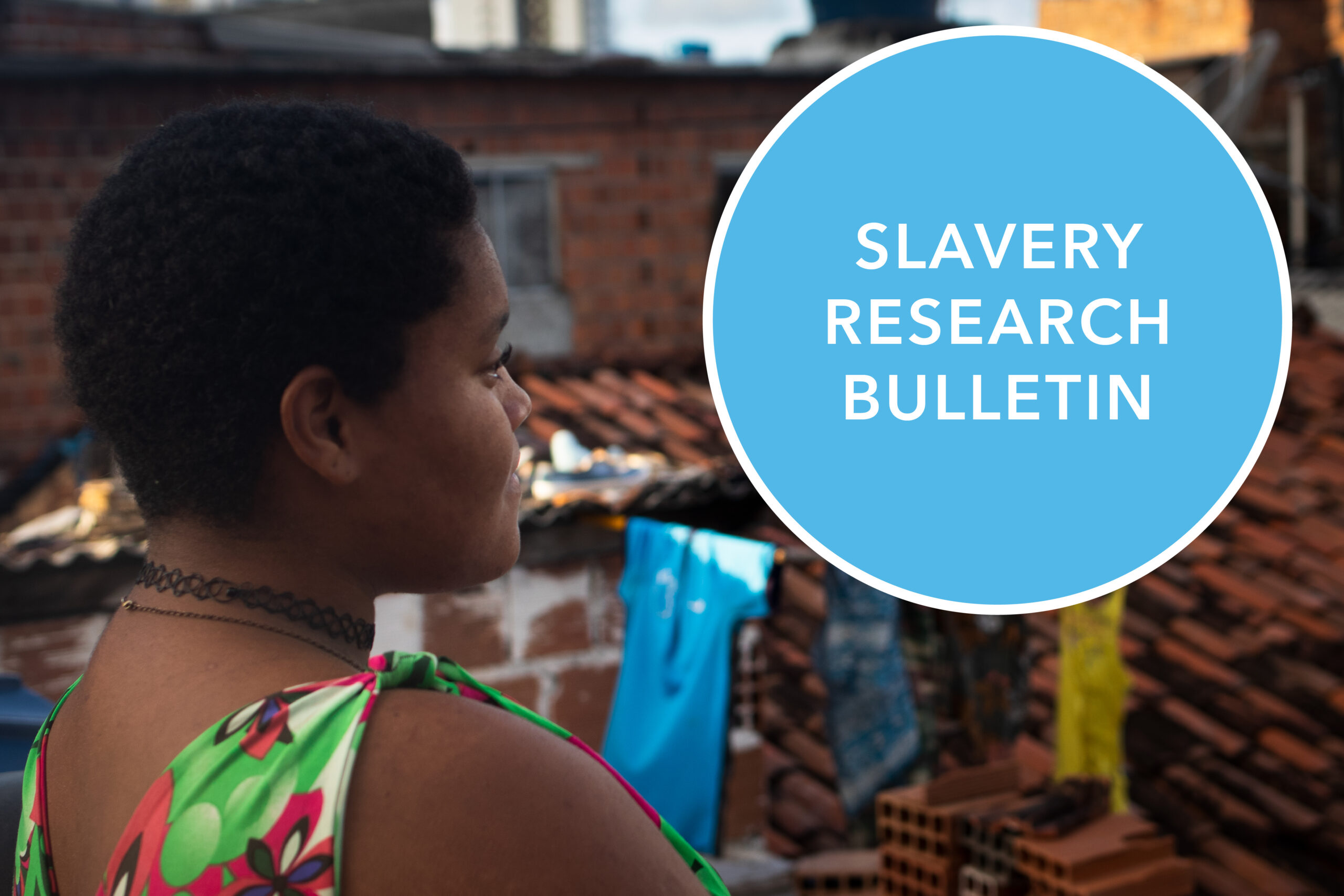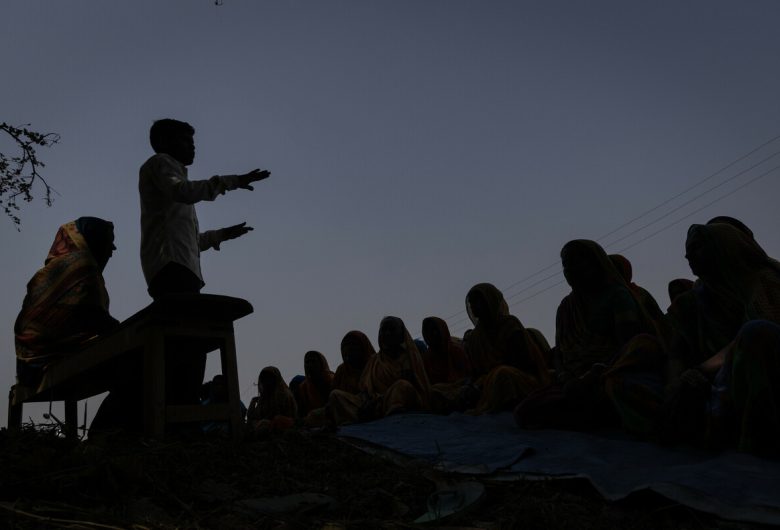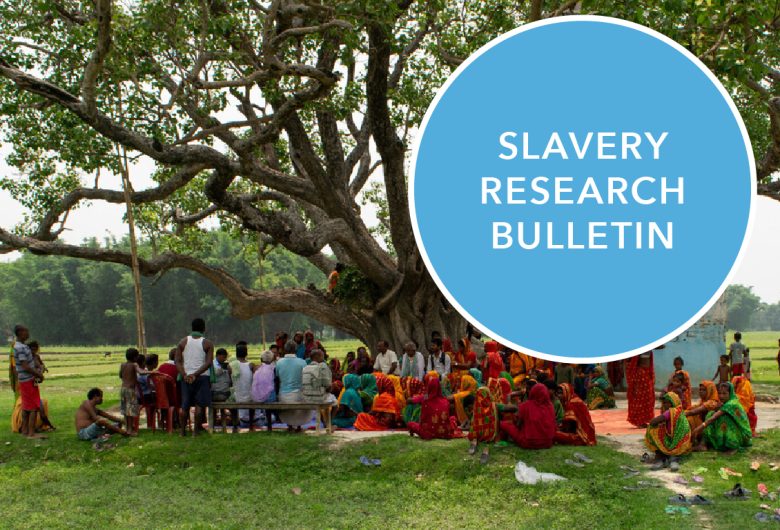Welcome to the Freedom Fund’s monthly bulletin designed to bring you new and compelling research from the global anti-slavery movement.
Experiences of slavery among displaced populations in three African countries
The International Organization for Migration, Walk Free and the International Labour Organization report on slavery-related exploitation faced by internally displaced persons (IDP) in Nigeria, South Sudan, and the Democratic Republic of the Congo (DRC). A survey of over 6,000 IDPs revealed frequent incidents of forced labour, abduction, and coercive recruitment into armed forces. Forced labour is most prevalent among IDPs aged 35 to 49. Within this group, the highest rate is found in the DRC (26 percent), followed by South Sudan (4 percent) and Nigeria (1 percent).
Strategic litigation attests to justice and financial risks of forced labour
The Human Trafficking Legal Center examines strategic litigation efforts under the United States’ Trafficking Victims Protection Reauthorization Act (TVPRA). Analysis of the 539 civil cases filed between 2003 and 2021 found that these cases have resulted in over $265 million in settlements and damages being awarded. The majority of cases (72 percent) have at least one corporate defendant and the authors argue that even without reaching a final verdict, strategic litigation can have wide-ranging effects. It removes the distance between parent companies and downstream entities and makes it clear to corporations that forced labour is no longer a cost-effective practice.
Australia’s visa system forces migrants into unsafe and exploitative jobs
Migrant Workers Centre investigates the relationship between Australia’s migration system and barriers faced by migrants in accessing decent work. Based on surveys with over 1,000 migrants plus 65 follow-up interviews, 58 percent of respondents reported wage theft, 33 percent were pressured to work without breaks, 25 percent have had to do unsafe work and 17 percent worked without pay. Participants also described instances of bullying (37 percent) and physical abuse (6 percent) in their workplace.
Unmet expectations among Ethiopian migrants returning from Saudi Arabia
Mixed Migration Centre highlights the gap between migrants’ aspirations and the reality of working in Saudi Arabia. Among the 356 Ethiopian returnees surveyed, all women worked as domestic workers while 80 percent of the men worked in agriculture. Nearly all (95 percent) of the returnees experienced detention, 55 percent said they gained no useful skill for improving their livelihood in Ethiopia, and only 1 percent felt that they had earned enough money through their migration. Half of the participants reported having limited knowledge about Saudi Arabia before migrating, and 88 percent of returnees would not encourage others to migrate.
Financial services prioritise productivity over the needs of small-holder farmers in Malawi
The International Labour Organization and Wageningen University assess the links between child labour and use of financial products among tea-growing households in Malawi. The study concludes that credit and saving products can enable farmers to invest in productive resources and help smooth consumption during the lean seasons. However, a negative side effect is that financial services may also increase the relative value of putting children into work rather than sending them to school, and such unintended consequences need to be monitored and mitigated in financial inclusion programs.
Read on
The Avery Center and the National Survivor Law Collective discuss the obstacles faced by survivors in accessing comprehensive legal services in the United States.
The Campaign for Human Rights and Social Transformation in Nepal explores the situation of the Haliyas, a historical group of bonded labourers who have been declared liberated by the government but continue to face discrimination and exploitation.
A team led by Pennsylvania State University evaluates an intervention to reduce child sexual abuse (CSA) among second-grade students in the United States.
Freedom Fund news
The Freedom Fund is providing up to USD 20,000 in trust-based grants to survivor-led organisations in Ethiopia, Uganda, and Tanzania. Apply by 20 April 2023.
Visit our Newsroom for more updates.
Research library
Visit our Slavery Research Library to access anti-slavery resources from across the globe.
Contact
The Slavery Research Bulletin is produced monthly by the Freedom Fund, a global fund with the sole aim of helping end modern slavery.
Research being featured in this bulletin does not equal endorsement by the Freedom Fund.
Click here to sign up to the Slavery Research Bulletin mailing list.



